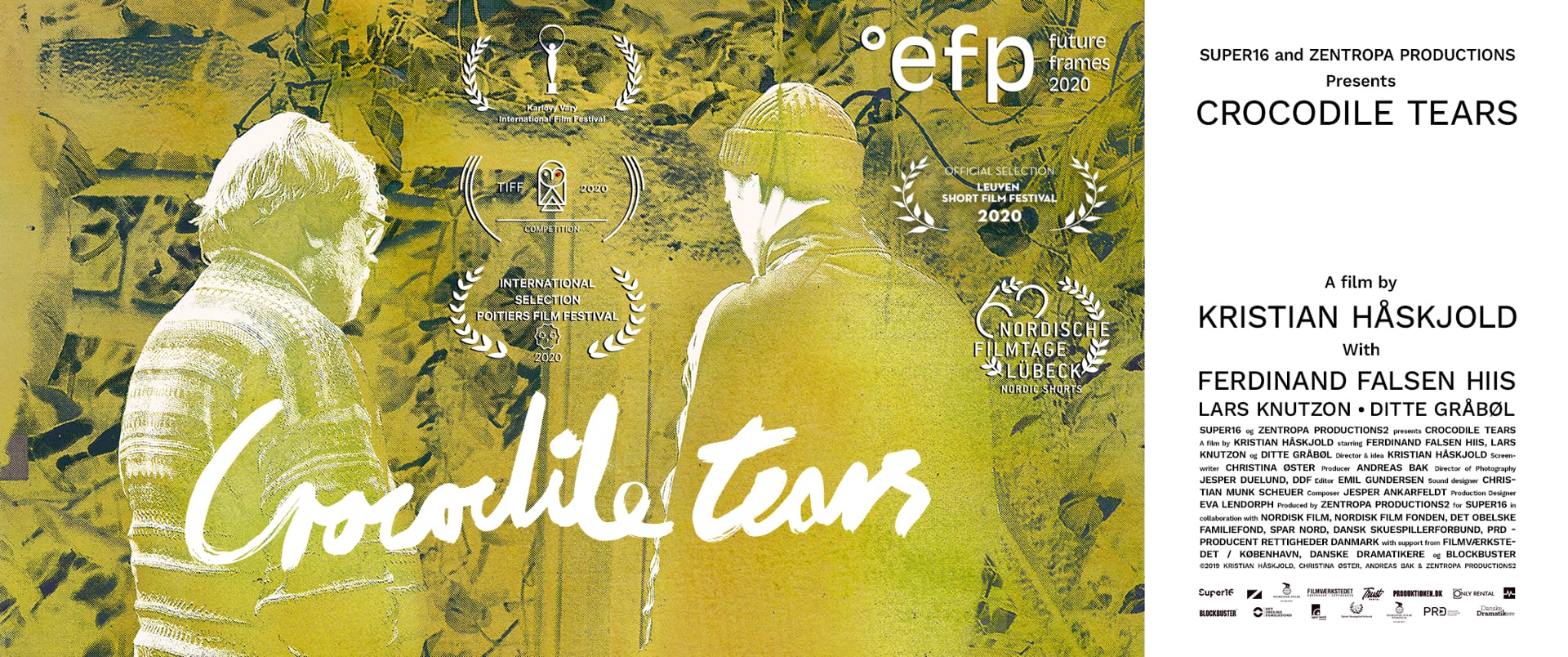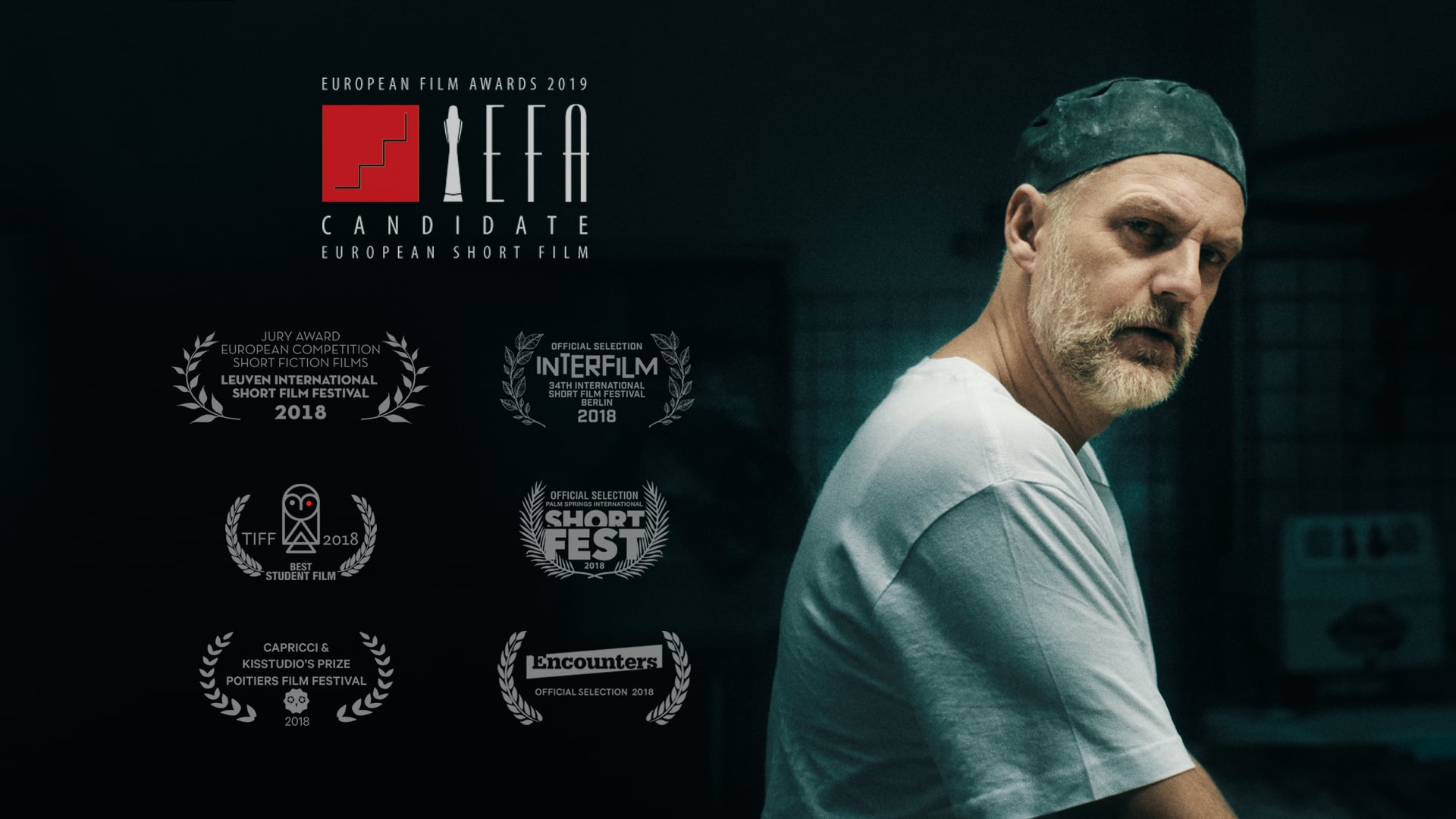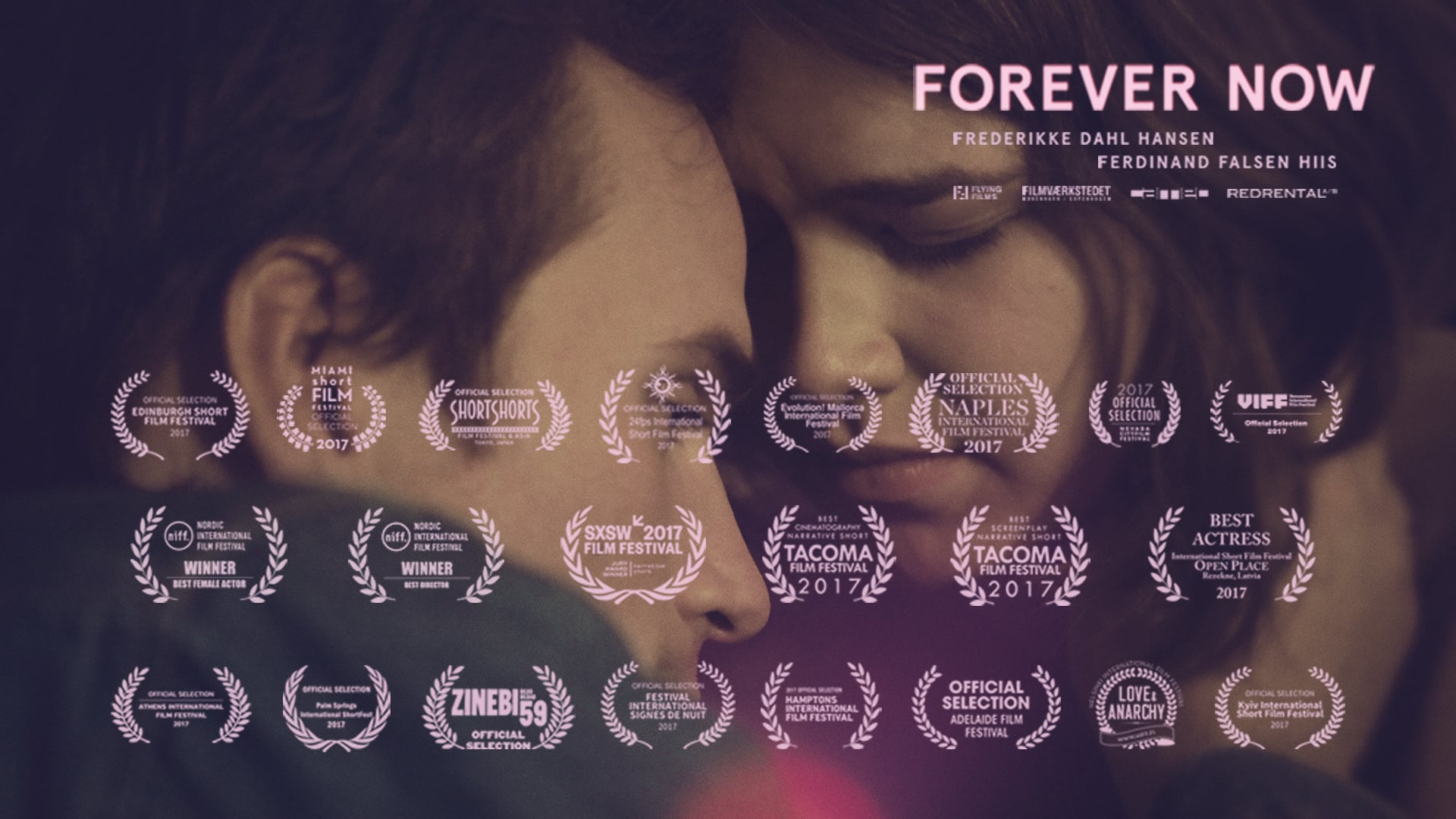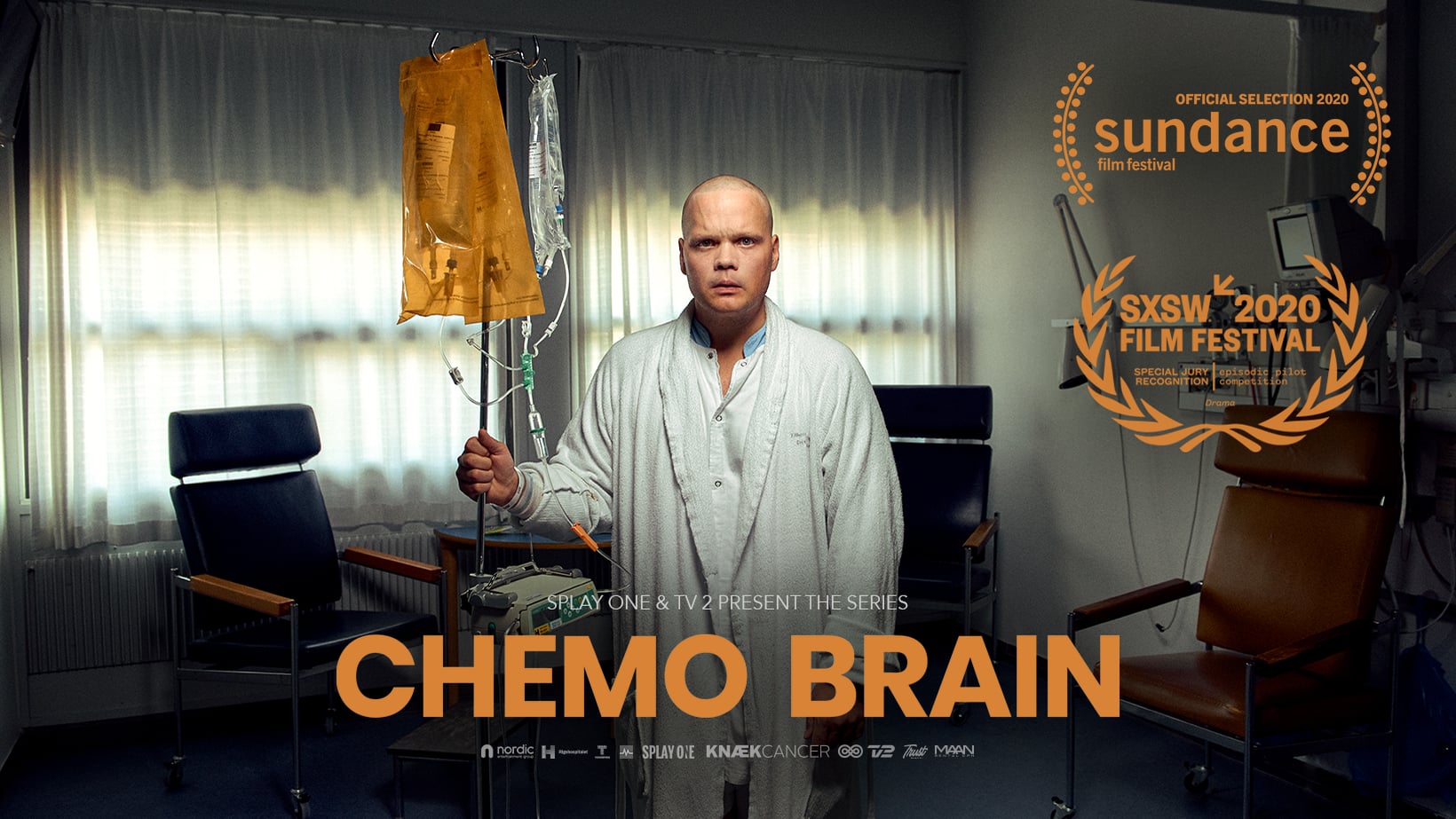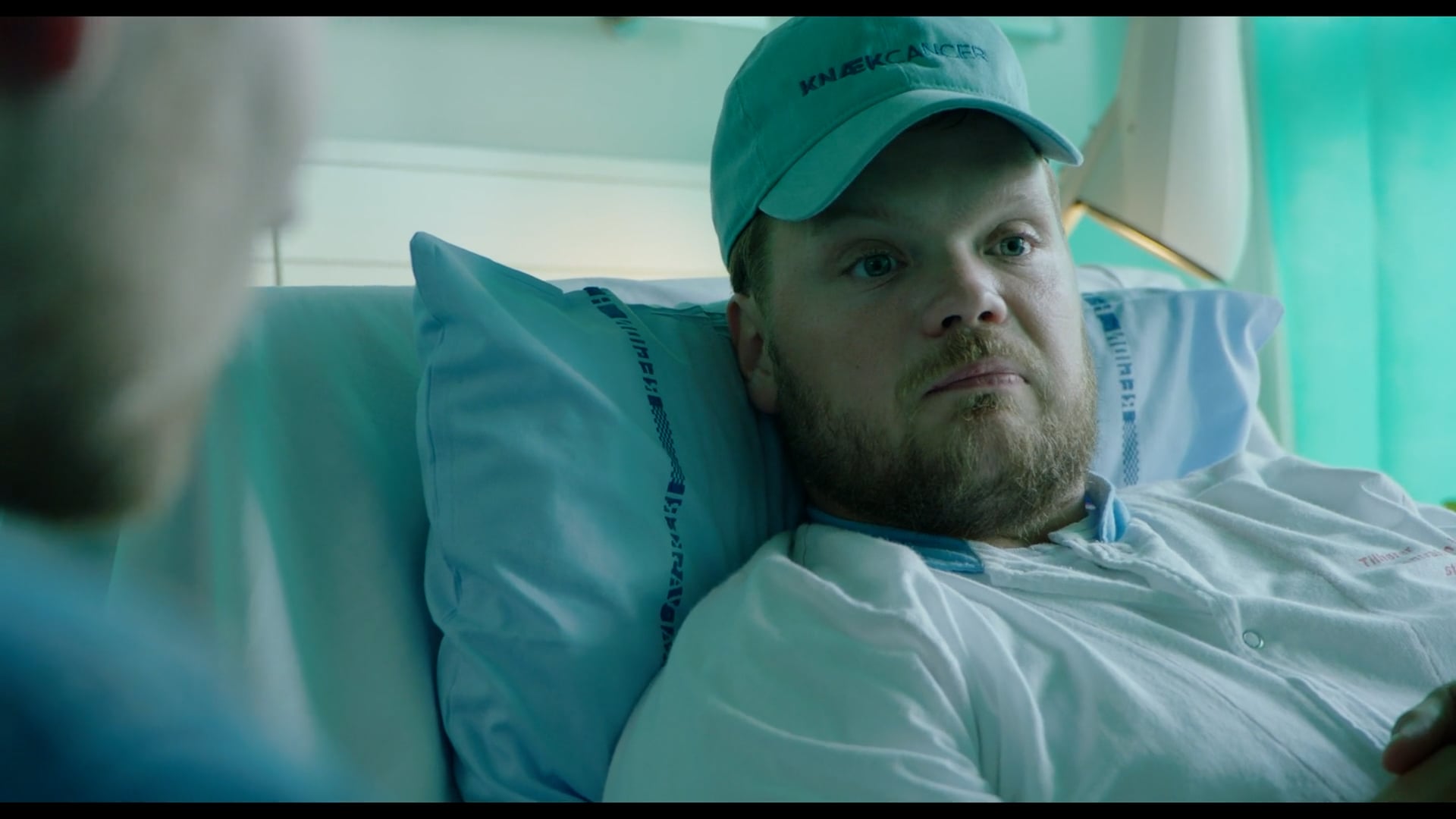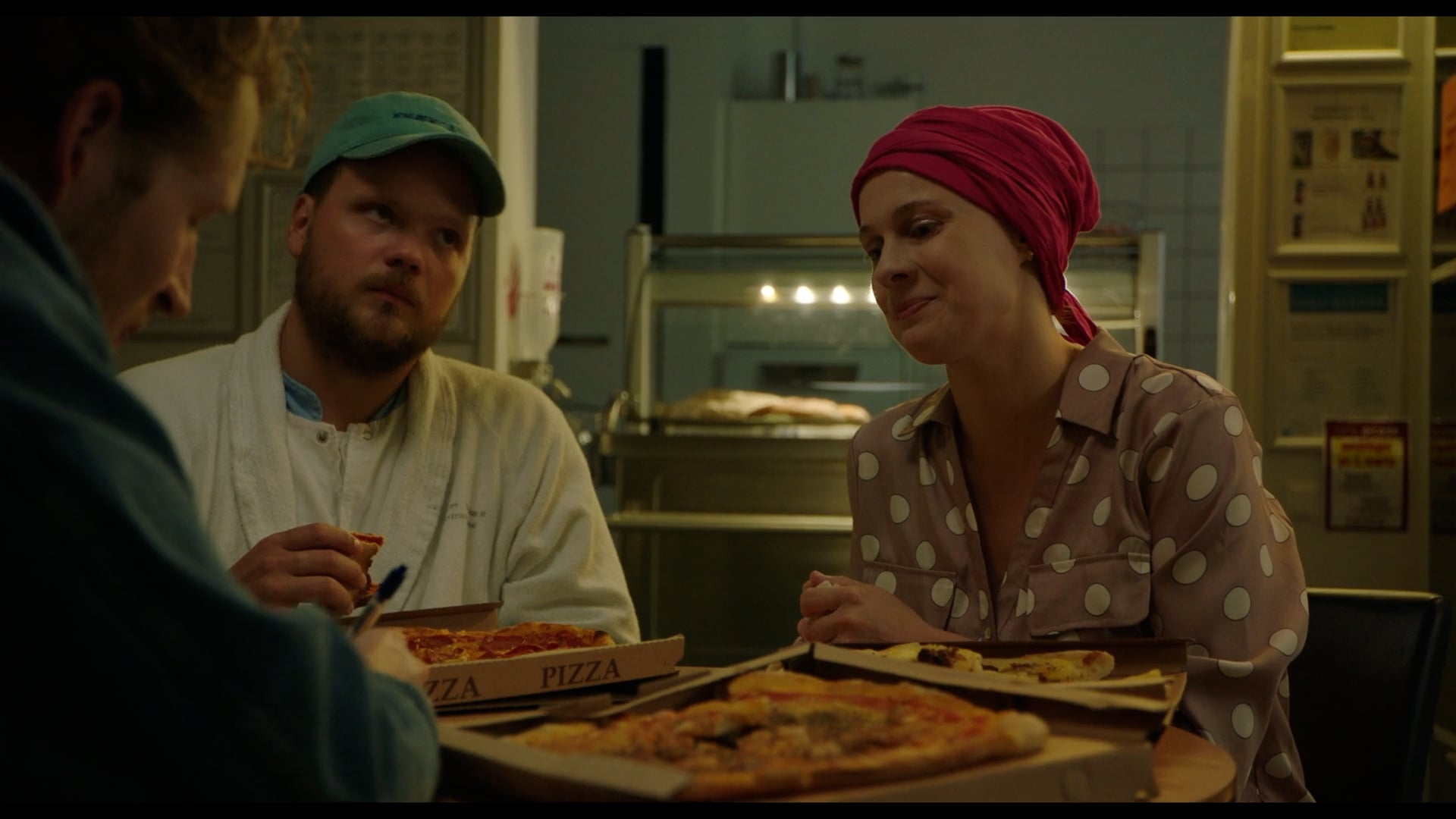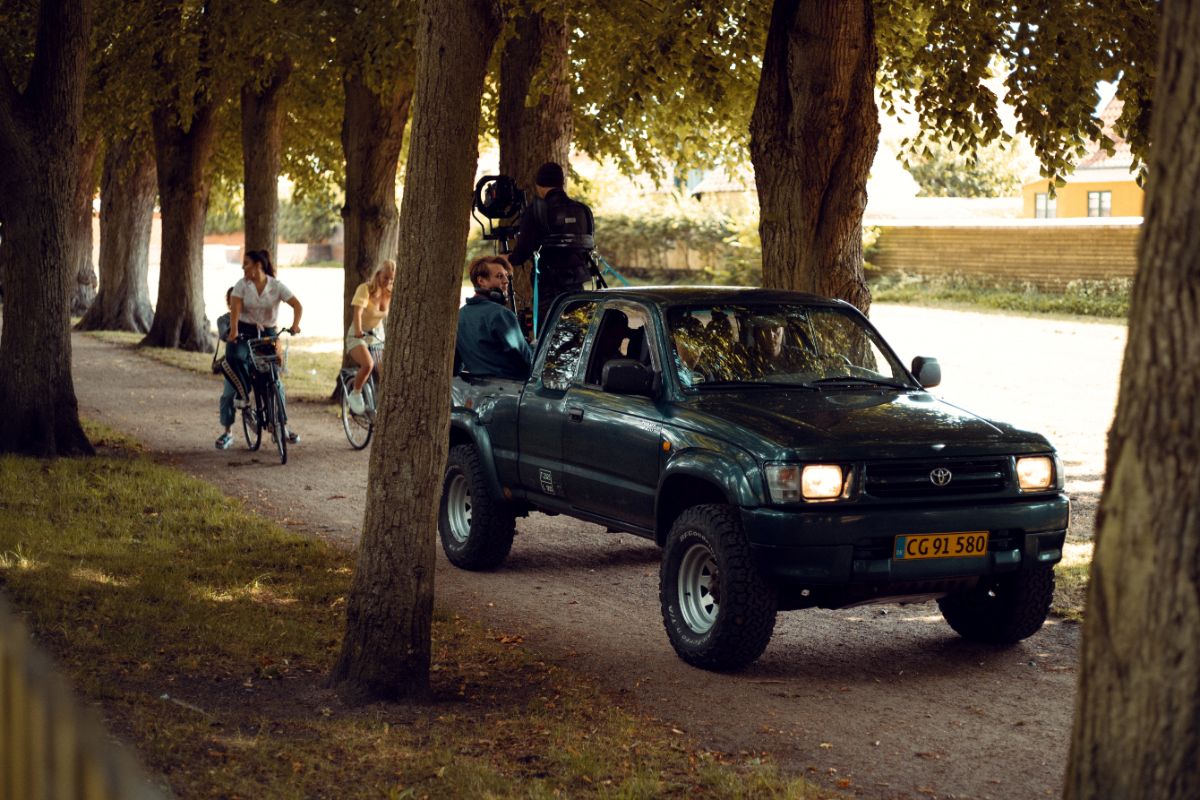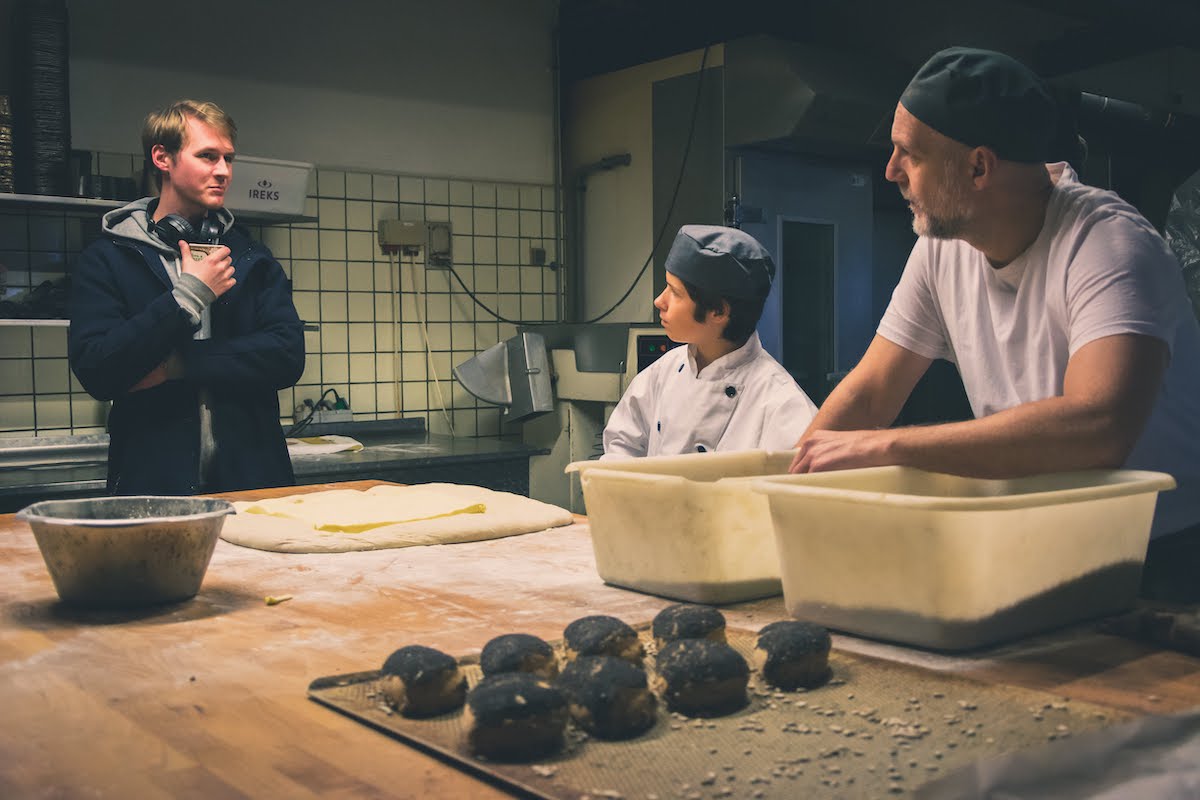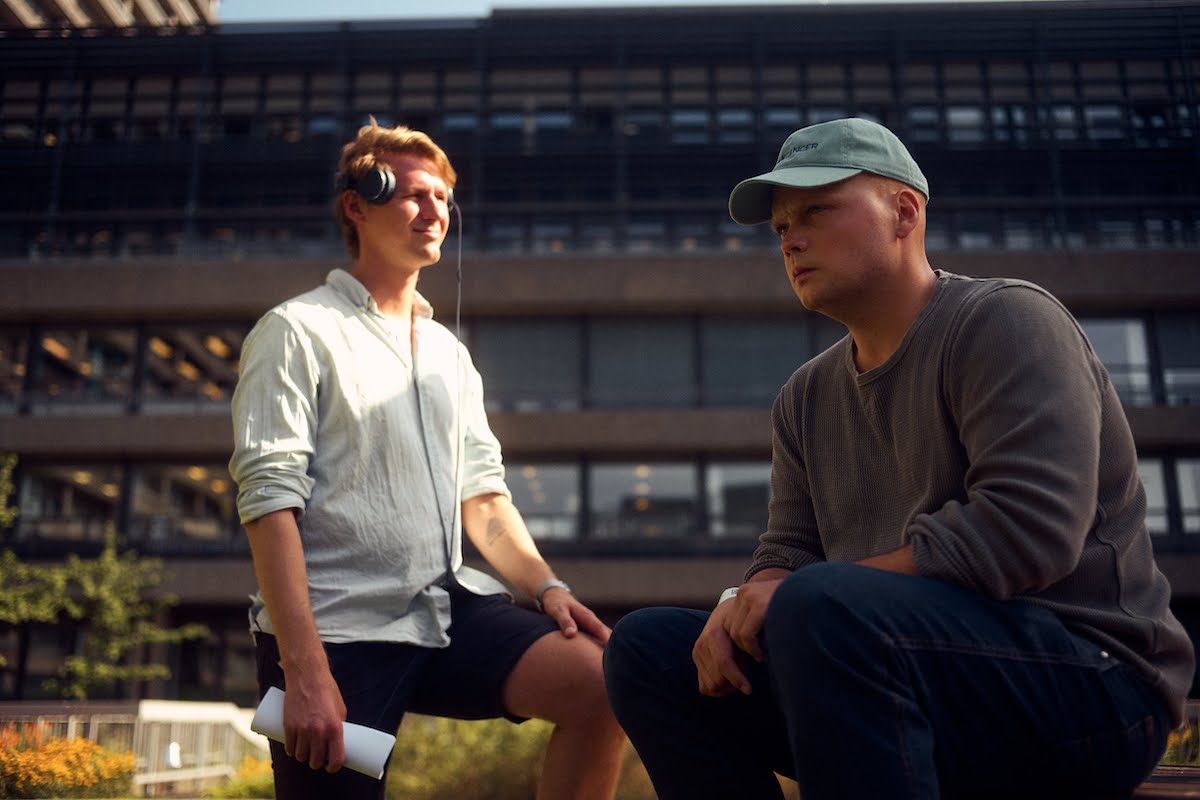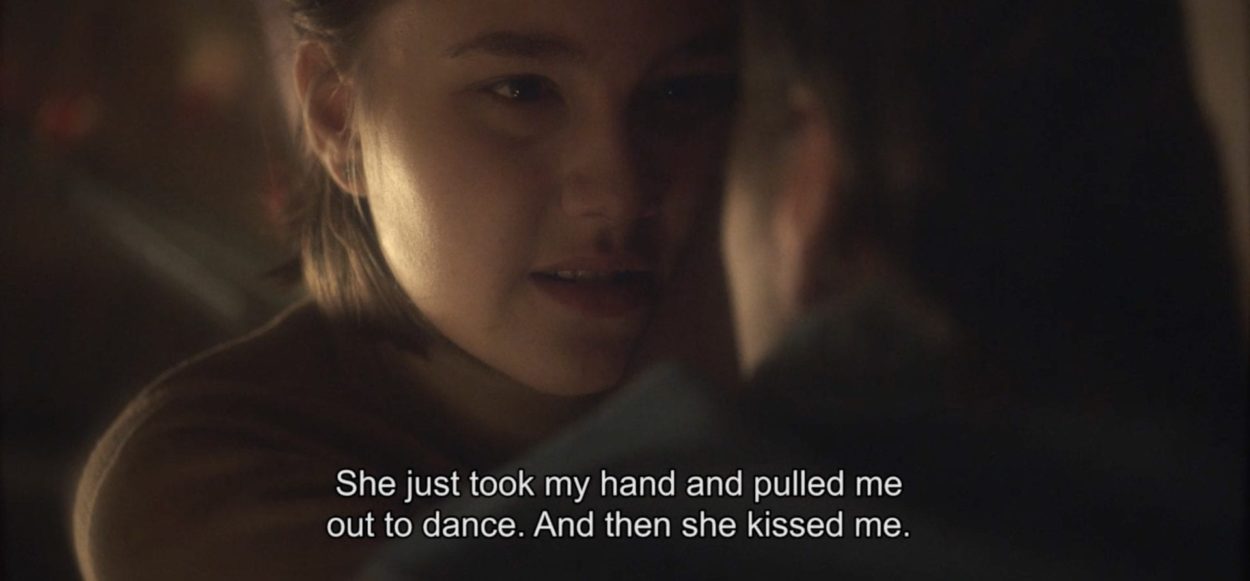Shooting YOUNG. Photo credit: Yannick Wolff
Looking at your reel, Kristian, you seem to have collected the coveted Vimeo Staff Pick for every film you’ve made while being a student at the Danish film school Super16 – the latest being your 2021 graduation film YOUNG. You’ve also won other international awards – way too many to list here – but Sundance and Oscar student nominations have popped up. What are the important qualities that you aim to convey in your films that seem to win over the judges?
It’s hard to put the answer into words… but I’ll try. My focus as a director is often on the emotional exploration of the characters. I’m always trying to create something that feels authentic to me, has a sensibility, and moves me one way or the other. I hope that if I’m moved then some other people will be as well. Since I’m so involved in the writing process it’s also easier to find those strong moments in a story. When I develop my stories I also always try to find some universal themes in them, so that they’re accessible and relatable to a broader audience. That’s important to me, because I see film as a collective experience.
Was it always your goal to make films?
The short answer is “yes”. Nobody in my family works in the creative industry, but we always watched a lot of films. My dad’s biggest hobby was his computer – a hobby I inherited as well. So from early on I fell in love with both the storytelling side and the technical side of filmmaking.
My journey has been long though, because I had no clue how to reach my goal. When I was 20, a fashion producer took me under his wing and gave me a lot of editing work even though I had minimal professional experience. Over the next 10 years a lot of people helped me on my way and I made a living out of editing hundreds of commercials, two animation features and some TV shows, while on the side I directed a bunch of my own short films.
I applied to several film schools and made it to the final entrance exam several times with no acceptance, which was equally devastating every time, but in 2017 everything changed. My short film Forever Now won the Jury Award at SXSW and made a huge splash both nationally and internationally. With Forever Now I applied for the Danish film school Super16 and was one of their six directors, who got accepted every second year. Since then I’ve focused on my career as a director and writer, which so far has been a huge pleasure.
You come up with the idea for each film and then work with a screenwriter. How does this collaborative process work?
For me a lot of the DNA as a director also comes from your connection to the story, the theme and deciding how the story should be told, so it has always been very important for me to be deeply involved in the writing process.
In Denmark it’s very common to collaborate with a screenwriter on both features and series, so when I was accepted to Super16 I decided that my focus on my school films should be to learn to collaborate in that process. In most cases so far, I’ve presented an idea from which we develop a storyline together.
After a long process of developing the storyline the screenwriter writes the screenplay. We do a lot of meetings and research and the screenplay often changes a lot as we go. Another element of my films is that I like to develop a lot with the actors and work a lot with improvisation, so short films like Forever Now and Crocodile Tears only have treatments and no written dialogue.
If you look at the screenplay for A Worthy Man, the dialogue and the staging is very different from what you see in the film. What I’ve learned in my process of working with other writers is the importance of aligning expectations and visions of the film from the get-go and several times during the process. If you don’t do this, it can become messy and uncomfortable.
On set of A Worthy Man. Photo credit: Esben Sloth
You’re very good at capturing the realities of growing up. Do you find you are compelled to draw from your own life experiences when you are storytelling?
Yes – it’s a cliché, but it has worked as some kind of therapy for me to explore important moments and themes in my life. When you do that, you know the feelings of the characters and it’s possible to write a very specific and authentic story, because you’ve lived it or been close to it.
That said, it has also been very important to me that my films appeal to a broader audience and shouldn’t just be for myself. To do this, I always try to find the universal feelings in my stories and explore those. If I can’t find a reason why the story should be relevant for other people, I would never dig into it. For instance, Forever Now was about the feelings of a breakup, A Worthy Man was about depression, Crocodile Tears about gaining an adult relationship with your dad. Chemo Brain was about the unexpected turns that can happen in our lives. And so on.
How much of YOUNG comes from your own childhood and where was that?
I grew up in the countryside of Denmark in a small town called Nørre Aaby. The film is a mixture of my own experiences and those of other people I grew up with. Because of the small town environment, you more or less knew all the other kids in town – for better or worse. Also as there were so few places to hangout, you were very easily involved in stupid situations like verbal or physical violence just because it was hard not to be in contact with kids with violent tendencies.
It didn’t make it any easier that one of my best friends was a really big guy and solely because of his size a lot of people wanted to fight him. The whole vibe of the environment and the party and the characters are based both on my own personal experiences from back then with a mixture of a female friend’s experiences. My friend had a small group with two other girls. Together they did a lot of terrible things to other girls, which she regrets till this day. She did it to fit in and ended up moving to another school because she needed an out.
The attack in the forest is inspired by a mixture of two different sad incidents from my hometown. The first sad incident was when a boy was forced to take off all his clothes during a town party. The second incident was when my female friend felt pressured to attack her old friend at a party. Kids and teenagers explore boundaries, want to fit in and are not always aware of the consequences of their actions. At the same time parents don’t always know what’s actually happening in their kids’ lives. Because of this, Silke and Pernille have to deal and live with this trauma the rest of their lives. These were some of the things I wanted to explore in the film.
Yes, there’s some pretty vicious bullying in YOUNG. What was the casting process like? What were you looking for from the actors?
It was really important for me to find the right three girls for the lead roles in the film, so the casting process was spread out over four months. I had a great collaboration with the casting director Astrid Faarup.
We began with an open call for self-tapes and auditions with more experienced actors. Then we made a shortlist and did some rounds of chemistry tests between the different girls until we ended up with Frieda Joanna Krøgholt as Pernille, Stran Ezgi Benli as Zarif and Mathilde Arcel Fock as Tanne.
In the chemistry tests I was looking for a group dynamic inspired by the girls I grew up with. It was important that they seemed like good friends while also having an internal power struggle in the group. At the same time it should look fun.
For the Pernille character I was specifically looking for a girl who was able to act tough but still have access to vulnerability. Tanne had to be tough and have a manipulative side. Zarif had to be some kind of middle ground between the two. For the Silke character, I was looking for someone who had a softness to them but would be able to withstand the emotional experience it would take for an actor to go through.
BTS Chemo Brain. Photo credit Yannick Wolff
Do you enjoy the creative freedom of both directing and editing your work?
I enjoy it to some extent, yes. But it’s also very hard to do, because you’re carrying all the pressure and rarely get a chance to experience the edit with fresh eyes. On longer projects I would never do it on my own, but instead co-edit with another editor. That’s also what I did on my mini series Chemo Brain.
I prefer to do it like this, because I have a background in editing and think it’s fun to play around and explore the material on my own. Sometimes I also have a very clear idea about how a scene should be, but have a bit of a hard time communicating the idea to the other editor – then it’s easier to just try it out myself. When you work with a co-editor, you also have the necessary sparring partner to discuss what works and what doesn’t. If one of us can’t “solve” a scene, then it’s possible to pass it on to the other and get a fresh idea on it. I think that’s the perfect way to work.
Are these shorts leading onto longer-format plans?
I’m currently in early development of my first feature project. It’s a bit early, so I can’t say too much about the story yet, but we received some early development money from the Danish Film Institute, which is really exciting. The film is produced at Zentropa (The house of several films by the likes of Thomas Vinterberg, Susanne Bier and Lars Von Trier) by producers Andreas Bak and Caroline Dam, who also produced three of my short films at Super16.
This summer I’ll also be one of the two conceptual directors on the second season of the Danish young adult series Hooligan for our national broadcaster DR – the series was a huge success in Denmark last year. I’m also in the early writing process of a feature with American producer Kara Durrett who I met at SXSW in 2017.
Is there anything else you would like to mention?
Filmmaking is teamwork, so I just want to say thank you to all my collaborators and supporters through time, who have believed in me and helped me get where I am. Love to you all.
Interview by Rebecca Nichols
Kristian Håskjold website
@kristianhaskjold

